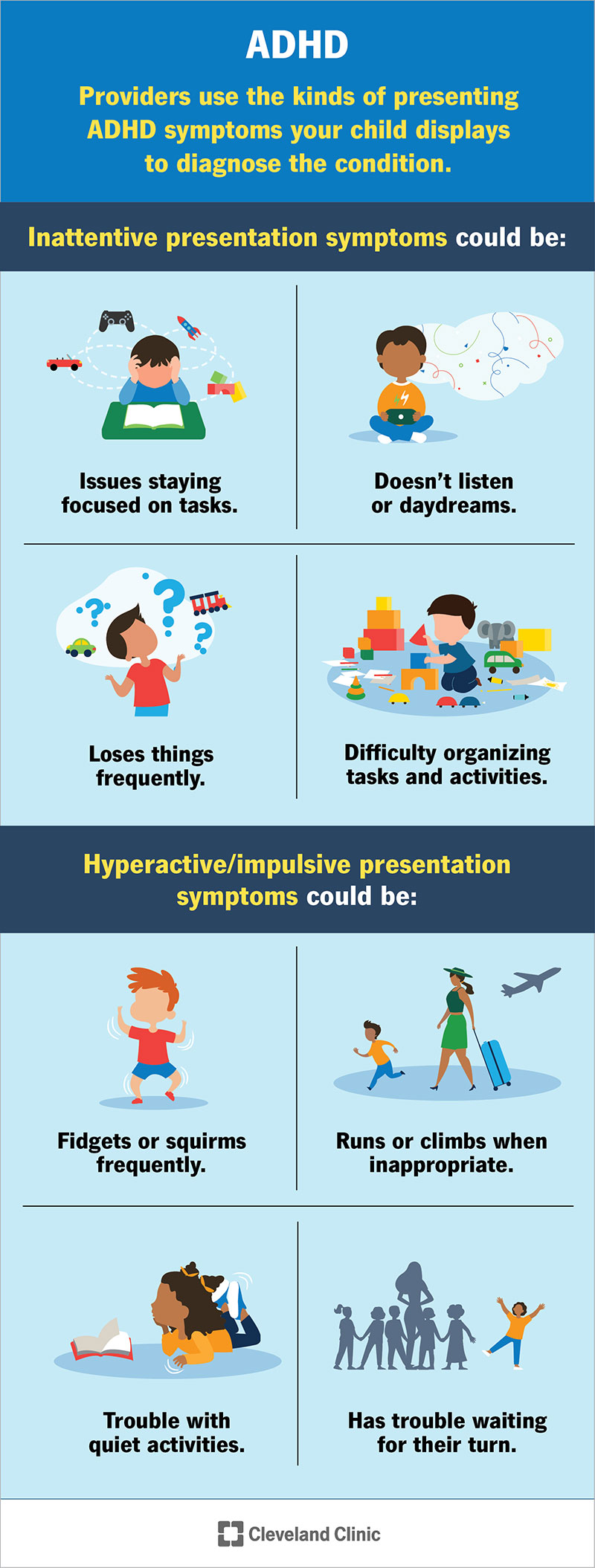Telehealth Psychiatrist Services for Confidential Mental Health Support
Telehealth Psychiatrist Services for Confidential Mental Health Support
Blog Article
Your Guide to Locating the Right ADHD Therapy for Enduring Results
Browsing the intricacies of ADHD treatment calls for a nuanced understanding of both the problem and the myriad alternatives available for effective management. It is necessary to recognize that what benefit one person may not necessarily generate the same outcomes for another. Therefore, a tailored approach-- integrating specialist assistance, drug, behavioral approaches, and way of living adjustments-- comes to be vital. Nonetheless, the trip towards recognizing one of the most appropriate therapy strategy can be stuffed with obstacles. What are the vital elements that affect successful results, and exactly how can individuals ensure they get on the ideal course?
Understanding ADHD and Its Influence
:max_bytes(150000):strip_icc()/adhd-treatment-4157278_FINAL-848b0cfc4d0b42a0b66c3d2ca894e9dd.png)
In grownups, ADHD can bring about challenges in office settings, affecting efficiency, time administration, and social partnerships. Usually, undiagnosed or improperly took care of ADHD can add to co-occurring mental health concerns, such as anxiety and depression, more making complex a person's general wellness.
The societal assumption of ADHD can vary, bring about preconception and misunderstanding, which may impede people from seeking assistance. As awareness expands, it is vital to cultivate an environment that promotes understanding and support for those impacted by ADHD, stressing the need for exact diagnosis and customized approaches to alleviate its impact on everyday life.
Summary of Treatment Choices
A comprehensive approach to dealing with ADHD includes a variety of choices customized to the individual's unique needs. These choices can generally be classified into behavior treatments, psychoeducation, and way of living alterations, along with pharmacological therapies that may be discovered later on.
Behavior treatments, such as cognitive-behavioral therapy (CBT), concentrate on changing certain actions and establishing coping strategies to take care of signs properly. Psychoeducation plays a critical role in empowering both people and their households by providing information concerning ADHD, its obstacles, and effective approaches for assistance.
Way of life adjustments can significantly affect ADHD management. Regular exercise, a balanced diet regimen, and sufficient sleep add to overall health and sign control. Mindfulness techniques and relaxation techniques can likewise boost focus and lower impulsivity.
Support system and family members treatment can promote a feeling of neighborhood and understanding, aiding individuals feel less isolated in their experiences. Each therapy alternative should be taken into consideration together with the person's choices and check circumstances, ensuring an alternative approach that advertises long-lasting success. Eventually, the objective is to develop a tailored treatment strategy that resolves the particular challenges associated with ADHD while boosting overall lifestyle.
Drug: Pros and Disadvantages
Drug plays a critical duty in the treatment of ADHD, with many choices available that can considerably minimize signs and symptoms for numerous individuals. Stimulants, such as methylphenidate and amphetamines, are typically suggested and have revealed performance in improving focus, decreasing impulsivity, and enhancing total behavior. These medications function by boosting dopamine and norepinephrine levels in the brain, which are often dysregulated in those with ADHD.
Nevertheless, using medication is not without its obstacles. Some people might experience adverse effects, including sleep problems, reduced cravings, or boosted stress and anxiety. Moreover, discovering the best dosage can be a trial-and-error process, needing close monitoring by healthcare specialists. Furthermore, not all patients respond to energizer medicines, leading some to discover non-stimulant choices, which might have a delayed beginning of activity or various adverse effects.
It is important for people and their families to consider these pros and cons carefully. Balancing the advantages of symptom management against potential side impacts is crucial for attaining optimal therapy end results. Collaboration with medical care service providers can help with enlightened decisions, ensuring that medicine is part of a thorough ADHD administration plan.
Behavior Modification Methods

One typically utilized approach is Cognitive Behavior Treatment (CBT), which assists individuals identify and transform negative idea patterns that add to ADHD-related challenges. Therapist for ADHD. Through CBT, clients learn to set practical goals, handle time properly, and establish organizational systems
An additional efficient method is Parent Management Training (PMT), which educates moms and dads on how to reinforce positive habits and lower adverse ones via regular discipline and communication approaches. This strategy fosters an encouraging home atmosphere that motivates behavioral improvements.
Social skills training is also essential, helping people with ADHD navigate social communications better. Role-playing and modeling appropriate behaviors can improve social proficiency and minimize anxiety in social circumstances.
Lifestyle Changes for Better Management
How can lifestyle modifications substantially improve the administration of ADHD signs? Implementing tactical way of life modifications can bring about significant enhancements in emphasis, company, and emotional guideline for people with ADHD.
First of all, establishing an organized daily routine assists in producing predictability, which can alleviate sensations of bewilder. Constant timetables for dishes, check these guys out research study, and rest can improve day-to-day performance.
Including normal physical task is also vital, as exercise has been shown to increase dopamine degrees, boosting attention and motivation (Therapist for ADHD). Aiming for at least thirty minutes of modest exercise most days can be beneficial
Nutrition plays an essential role. A well balanced diet abundant in omega-3 fatty acids, whole grains, and protein can have i got depression sustain cognitive function. Restricting refined sugars and caffeine may decrease symptoms, as these can bring about energy accidents and irritability.
Conclusion
Finally, discovering the appropriate ADHD treatment necessitates a multifaceted method that considers private needs and choices. A combination of medication, behavioral treatment, and lifestyle modifications can considerably enhance symptom monitoring and total well-being. Taking part in psychoeducation and developing structured regimens better sustains effective therapy techniques. Collaboration with health care professionals and open interaction with support networks are necessary parts in browsing the intricacies of ADHD administration, inevitably leading to lasting results and enhanced high quality of life.
Report this page